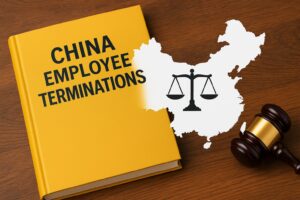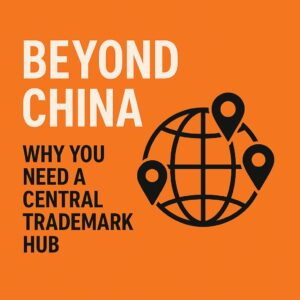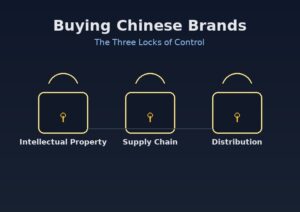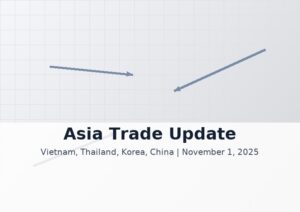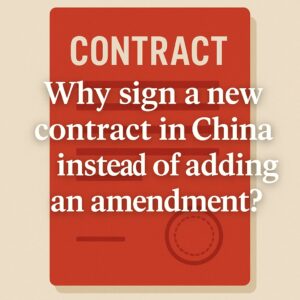1. Things are Bad Between China and the West
In yesterday’s post, Doing Business in China or with China: It’s All Good, I talked about how we would try to move away from focusing so much on declining relations between China and the West and focus more on China’s business opportunities, of which there are still many.
On May 4 — one day BEFORE President Trump announced by tweet that the United States would be enacting new 25% tariffs against China, we posted The US-China Trade War: Winter is Coming, essentially saying that no matter what happens on the trade agreement front, relations between China and the West are in a straight line decline. We wrote that post to emphasize that a trade agreement (if ever there is one) will not be a reset in US-China trade relations. There has been an inexorable souring of relations between China and the West and that sort of thing takes decades to change.
We concluded that post by talking about the new risks of doing business with China:
To quote an old investment adage, “the trend is your friend,” and right now the trend is for the West and China to continue decoupling and your business needs to be cognizant of this and monitor it. We keep writing about this because we see it as likely to impact nearly all foreign companies that do business with China, even those from countries whose relations with China are much better than those between the United States and China. No matter in what country your company is based, if you do business with the United States — especially if you have your products made in China and then sell them to the United States — your business is at risk of becoming entangled by the decoupling.
If you want to see your company go into China or have its products made by China or increase its China presence, you should be prepared to explain to your company’s decision makers why you believe your business will not fall prey to US-China tensions. If you are having your products made in China, you almost certainly are already looking to reduce your China exposure, but in doing your cost benefit analysis for that, consider whether yours is the sort of business whose sales might increase merely by being able to tell its customers/consumers that your company does no business with China. And yes, this is going to sound self-serving (and it is, but it is also true), you need to more than ever make sure you are not doing anything that might make you an easy target of the Chinese government. In other words, make sure your company is in full compliance with China’s laws, particularly its tax, environmental, employment and bribery laws.
And then the following day — after President Trump shocked many by announcing the new 25% tariffs, we wrote an even more downbeat post, The US-China Cold War Starts Now: What You Must do to Prepare, on what you should be doing NOW if you sell Chinese products to the United States or import Chinese products into the United States. But even in that post, we commented on how just as companies that make products in China are beating down the doors to reduce their China exposure, our law firm is getting more legal work helping companies go into China than ever before:
And just as we are seeing so many of our manufacturing clients beating down the doors to get out of China, our China WFOE formation work is at its highest level (by far) in the history of our law firm. This means we are on the one hand working to get many clients out of China, while at the same time working to get many of our clients more deeply embedded into China with their own Chinese companies.
2. Western Companies are Going into China Now
It is the going into China and doing business in China part on which this post will focus. Relations between China and the West are declining and yet Western companies are moving as fast as they can to go into China.
Our client companies that are going into China know what is happening with China and in China and those things are actually fueling their decisions to go into China, and quickly. Those same things are fueling decisions by other clients to increase their footprint in China. These companies are telling us that they are doing so much business with China or will be doing so much business with China that it makes no sense for them to just walk away. That being the case, they are rightly concerned that if the only business they do with China comes from their corporate entities outside China, they are at risk of getting cut off by changing tariffs and/or changing trade relations. But if they are actually doing business in China through their own Chinese company (such as a WFOE or a Joint Venture), they will be better protected against the vicissitudes of international trade. And they are correct.
3. China Legal Trends
Way back in October — when many still believed China trade would quickly revert back to as it had always been — we did a post, China Business and Law Trends setting out what we were seeing then, which is pretty much what we are seeing now:
Our China lawyers had a team meeting yesterday, and as is so often the case at such meetings, much of the meeting involved talking about what we have been seeing lately. We mostly focused on the following trends:
1. Six months ago, we rarely worked with our firm’s international trade lawyers. Sure, we would occasionally call one of them to help with a sticky customs issue or a client concerned about getting hit with antidumping or countervailing duties, but these days we find ourselves working with them constantly. Companies that are getting hit or will soon be hit with having to pay 25% tariffs are looking for help in figuring out how to have their Made in China products made elsewhere so they can legally avoid having to pay the tariffs. See China Tariffs and What to do Now.
2. Six months ago, about 90% of the international contracts we drafted involved China or the EU. That number is now nearing 60% as our existing and new clients are diversifying outside China, mostly to Vietnam, Thailand, Taiwan, Malaysia, and Mexico.
3. International litigation is on the rise. We are reading about this and we are seeing it. This is happening because of the uncertainty and the disruptions stemming from the tariffs. With disruptions and uncertainty comes disputes. We see no end in sight to this increase.
4. China is more open to foreign businesses than it has been in years. Forming a WFOE is a faster, cheaper and easier than it was just a few years ago. Check out The NEW Steps for Forming a China WFOE.
5. Chinese factories are copying and selling their foreign customers’ products faster than ever. Almost every week we hear of a Chinese factory that sold its foreign customer’s product before or right after shipping out the foreign customer’s first order. The tariffs are causing Chinese factories to question the viability of long-term relationships with foreign buyers and they are deciding that they can make more by selling their customers’ products online themselves. In the past, our lawyers did not push back when start-up companies wanted to “test” their product in the marketplace before spending for a contract to protect against their Chinese manufacturer competing with them. We now make clear this is a bad idea because by the time market strength has been determined, there may no longer be a product to sell. See China Trademark Theft. It’s Baaaaaack in a Big Way and Protecting Your Product From China: The 101.
6. The number of companies coming to us with big China legal problems has gone way down but the number of companies coming to us to proactively prevent China legal problems has gone way up. Foreign companies realize that China has gotten both serious and effective at enforcing its laws as against foreigners. See Doing Business in China Without a WFOE: Will the Defendant Please Rise for a good example of China cracking down on foreign company illegality and see China Employer Audits: The FAQs for a good example of what foreign companies are doing to avoid future legal problems.
4. China’s Future Treatment of Foreign Businesses
As it becomes clearer that trade with China has permanently changed, what China does with foreign businesses in China is going to become even more key. China can essentially go one of three ways on this:
1. China can turn even more inward and make it as tough as possible on foreign companies. It can enact new laws to accomplish this. This would hurt China’s economy.
2. China can stay the same, with the same being fairly encouraging of foreign direct investment by foreign companies that follow Chinese law.
3. China can open up further to foreign investment to benefit its economy and to garner allies for reinvigorating China’s trade relations with the West
So far, China has consistently taken the third way and gone out of its way to welcome Western businesses into China and assure them of their economic security. Indeed, China has enacted laws designed to make it easier for foreign companies to do business in China.
And as so many of our clients that are going into China (via WFOEs or Joint Ventures) or increasing their China footprint by adding branch offices and employees there are saying, “being in China is good for our China business.” Chinese consumers and Chinese companies prefer buying from foreign companies that have boots on the ground in China because those companies are perceived as more committed to China and better able to stand behind their products and/or services. Or as one of our clients told us, they believe that making a strong commitment to bolstering their China presence now will lead their customers to view them differently from their competitors that are not in China at all or are looking to leave or to reduce their presence there.
What makes sense for your business depends on your business and your industry, but for many businesses, now is indeed the time to fish or cut bait with China. And for many businesses, doubling down on China is the way to go.
What do you think?














